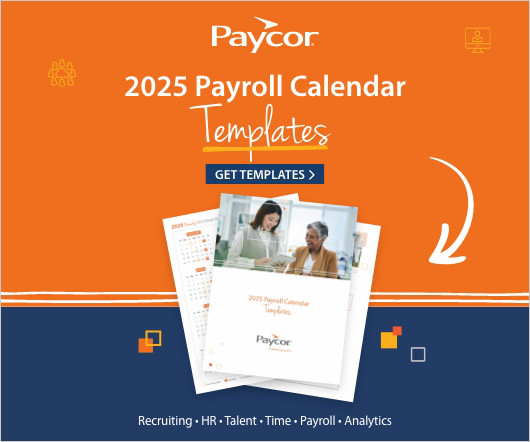Dec 23, Canadian Bookkeeping Compliance Resource
Bookkeeping Essentials
DECEMBER 23, 2023
Announcement - Transitioning Canadian time sensitive information in 2024 to a new site that will be a Canadian bookkeeping compliance resource.

Bookkeeping Essentials
DECEMBER 23, 2023
Announcement - Transitioning Canadian time sensitive information in 2024 to a new site that will be a Canadian bookkeeping compliance resource.

Brigade
DECEMBER 23, 2023
Working with a PEO helps legal firms offer a better benefits package, making your firm attractive to new talent and building a positive work culture.
This site is protected by reCAPTCHA and the Google Privacy Policy and Terms of Service apply.

Accounting Tools
DECEMBER 23, 2023
Why Should You Reconcile Inventory? Businesses may have significant investments in inventory, perhaps covering thousands of items. It is entirely possible that the actual amount you have on hand does not match what is stated in your inventory records - which can be a problem when a customer wants to buy an inventory item that is missing. The best solution is an inventory reconciliation, where you compare your on-hand inventory to your records and adjust the records as necessary.

Insightful Accountant
DECEMBER 23, 2023
Please be safe as you observe this holiday season.

Speaker: Timothy Allsopp
Payment challenges often lead to delayed projects, financial bottlenecks, and strained relationships. With construction projects becoming more complex, outdated processes are no longer sustainable. By refining financial workflow, companies can improve cash flow, reduce error, and foster trust between stakeholders. Discover practical strategies for redesigning payment systems to overcome workflow challenges while creating a smoother, more reliable process for contractors and subcontractors alike.

Accounting Tools
DECEMBER 23, 2023
What is an Expense? An expense is the cost incurred in order to generate revenue or obtain something. An alternative definition is that an expense is the reduction in value of an asset as it is used to generate revenue. If the underlying asset is to be used over a long period of time, the expense takes the form of depreciation , and is charged ratably over the useful life of the asset.

Accounting Tools
DECEMBER 23, 2023
What is an Appropriation in Accounting? An appropriation is a directive to spend funds in a particular way and within a restricted period of time. Thus, an appropriation controls the expenditure of funds. Appropriations are most commonly used by governments and nonprofit entities, where there is usually a limited amount of revenue , so great care must be taken to control expenditures.
Financial Ops World brings together the best financial operations content from the widest variety of thought leaders.

Accounting Tools
DECEMBER 23, 2023
What is an Applicable Financial Reporting Framework? An applicable financial reporting framework is the set of rules used as guidelines in the preparation of financial statements. The framework used is typically based on the type of business and where it is located, as well as the applicable laws. For example, the applicable financial reporting framework for a business located in the United States would be Generally Accepted Accounting Principles , while International Financial Reporting Standar

Accounting Tools
DECEMBER 23, 2023
What is an Error Correction? An error correction is the correction of an error in previously issued financial statements. This can be an error in the recognition , measurement, presentation, or disclosure in financial statements that are caused by mathematical mistakes, mistakes in applying accounting standards , or the oversight of facts existing when the financial statements were prepared.

Accounting Tools
DECEMBER 23, 2023
What is a Noncurrent Asset? A noncurrent asset is an asset that is not expected to be consumed within one year. These assets are intended to provide value for the organization for an extended period of time. It may be difficult to convert noncurrent assets into cash, so a business needs to be judicious in investing in these types of assets, or else it may end up having liquidity problems, since a large amount of cash may be needed to support ongoing investments in noncash assets.

Accounting Tools
DECEMBER 23, 2023
What is an Abusive Tax Shelter? An abusive tax shelter is an investment arrangement that claims tax deductions considered by the IRS to be illegal. An abusive tax shelter has no economic purpose; it exists solely to reduce the income taxes of investors. These arrangements are typically marketed by promoters and include complex, multi-layered transactions that are intended to conceal the true nature of a taxpayer’s income or assets.

Speaker: Ashley Harlan, MBA
What if your role as a fractional CFO went beyond operational support to actively shaping the future of your clients’ businesses? 💼 ✨ In this session, discover how fractional finance professionals can position themselves as architects of growth, guiding their clients toward sustainable success and preparing them for full-time financial leadership.

Accounting Tools
DECEMBER 23, 2023
What is Arrears in Accounting? In general, the term arrears means that something is late in being paid. For example, a debt payment could be in arrears, as could an account payable to a supplier, or a bond or interest payment to investors. In all of these cases, a company may enter into negotiations to revise the underlying debt agreement, either to reduce the amount or prolong the term of the payment.

Accounting Tools
DECEMBER 23, 2023
What are Audit Objectives? Audit objectives are associated with the audit of financial statements. Audit objectives are intended to obtain reasonable assurance that the financial statements are free of material misstatements , and to issue a report on those financial statements based on the findings resulting from the audit. The primary objectives associated with an audit fall into these classifications: Assess the client’s internal controls.

Accounting Tools
DECEMBER 23, 2023
What is an Appraisal? An appraisal is a valuation of the market value of an asset. It is derived by an experienced practitioner who creates a report, stating the reasoning behind a specific valuation. Appraisals are routinely conducted for a variety of properties, such as businesses, real estate and antiques. There are many reasons for appraisals, such as deriving a value for insurance purposes, for the sale of an asset, or to determine the division of property for an inheritance or divorce.

Accounting Tools
DECEMBER 23, 2023
What is an Accounting Manual? An accounting manual is an internally-developed handbook that contains the policies and procedures to be followed by an accounting staff. In addition, the manual may contain sample forms, a chart of accounts , and job descriptions. The manual can be used as a training guide for new employees and for anyone cross-training on new functions, as well as a refresher for existing employees.

Advertiser: Paycor
Use these handy calendar templates to stay on top of payroll in 2025! Download them today to share with your HR team or post for employees. Whether your company has biweekly, semi-monthly, or monthly pay periods, Paycor has you covered. Get your templates today!
Let's personalize your content